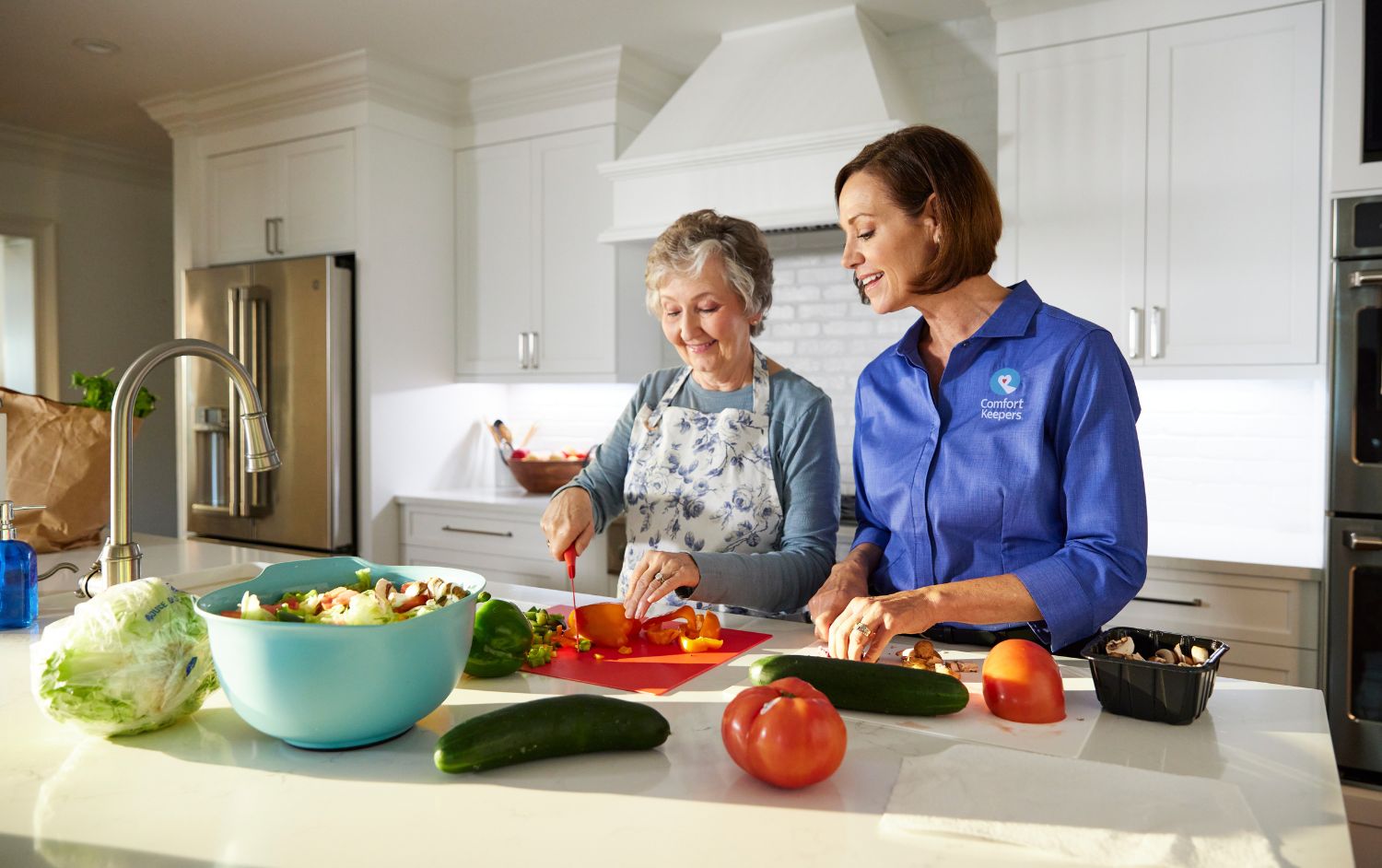What Are the Latest Aging Population Statistics for British Columbia’s Tri-Cities Region?
TriCities Senior Homecare | August 25, 2025
According to the Tri-Cities Seniors’ Action Society, the Tri-Cities region has approximately 30,400 seniors aged 65 and older, representing just 13% of the total population.
The Question Everyone’s Asking
“I’m considering relocating to the Tri-Cities area of BC for retirement, but I want to understand the current aging demographics and what the community will look like in the coming years. What are the latest statistics on the aging population in Coquitlam, Port Coquitlam, and Port Moody?”
This is one of the most frequently searched questions about British Columbia’s Tri-Cities region, and for good reason. As Canada experiences unprecedented population aging, understanding local demographic trends has become crucial for retirement planning, healthcare access, and community development decisions.
The Surprising Reality: A Younger Community in Transition
Despite Canada’s reputation as a rapidly aging nation, the Tri-Cities region presents a fascinating demographic anomaly. With approximately 250,000 residents across Coquitlam, Port Coquitlam, Port Moody, Anmore, and Belcarra, the area currently maintains a younger demographic profile compared to provincial and national averages.
Current Seniors Population: Below Average but Growing Fast
As of 2021, the Tri-Cities region has approximately 30,400 seniors aged 65 and older, representing just 13% of the total population. To put this in perspective:
- Metro Vancouver average: 17% seniors
- British Columbia provincial average: 21.4% seniors
- National Canadian average: 19.0% seniors
Sources: Statistics Canada 2021 Census, Fraser Health Community Profiles, BC Stats 2024
This means the Tri-Cities currently has a 4-8 percentage points lower concentration of seniors than broader regional, provincial, and national benchmarks.
The Demographic Shift: A 76% Increase in Just One Decade
Here’s where the story becomes remarkable. Between 2016 and 2021, the Tri-Cities added 12,401 new residents, with Coquitlam alone adding 9,341 residents – a 6.7% increase that brought the city’s population to 148,625. However, the region is experiencing dramatic growth overall, with the population having more than doubled over the past 20 years to around 250,000 residents.
The aging population is accelerating even faster than overall growth. Between 2011 and 2021, the 65+ demographic increased by an estimated 76% in the region, making it one of the fastest-growing senior populations in Metro Vancouver.
Individual City Breakdown: Where Seniors Are Concentrating
Coquitlam leads both in total population and senior growth:
- Current population: 174,248 (2024 estimate)
- Seniors aged 65+: Approximately 18,500 (10.6% of population)
- Growth trajectory: Fastest-growing city in the region
Port Coquitlam maintains steady demographics:
- Current population: 61,498
- Seniors aged 65+: Approximately 8,200 (13.3% of population)
- Character: More established suburban community
Port Moody shows unique patterns:
- Current population: 33,535
- Seniors aged 65+: Approximately 3,700 (11.1% of population)
- Despite adding 285 new housing units, the population dropped by 16 people between 2016 and 2021
The Housing Factor: Why Growth Appears Slower Than Reality
According to Andy Yan, director of the City Program at Simon Fraser University, 36% of Coquitlam condos are not owner-occupied, compared to 23% in Port Coquitlam and 31% in Port Moody. This explains why visible development doesn’t always translate to immediate population growth.
Many new developments are still awaiting occupation or serve as investment properties, creating a lag between construction and actual residency that masks the true demographic shift.
Provincial Context: BC’s Aging Acceleration
British Columbia’s senior population is projected to steadily increase from 19% in 2020 to almost 25% of all BC residents by 2041 – representing a 63% growth of senior population over 21 years. The Tri-Cities, starting from a lower baseline, is expected to experience even more dramatic proportional growth.
Future Projections: What to Expect by 2030-2041
Based on BC Stats projections and regional growth patterns, the Tri-Cities can expect:
By 2030:
- Total population: Approximately 290,000-310,000
- Seniors population: 52,000-58,000 (18-19% of total)
- Growth rate: 70-90% increase in seniors from 2021 levels
By 2041:
- Total population: Approximately 340,000-370,000
- Seniors population: 75,000-85,000 (22-23% of total)
- Alignment: Approaching provincial and national averages
By 2025, close to another 40,000 residents are expected to call the Tri-Cities home – more than half moving to Coquitlam.
Economic and Infrastructure Implications
Healthcare Infrastructure: The region will need significant expansion of:
- Family physician capacity (currently facing shortages)
- Specialized geriatric services
- Home care and assisted living facilities
- Mental health services for seniors
Transportation: Age-friendly infrastructure becomes critical:
- Enhanced public transit accessibility
- Improved walkability and cycling infrastructure
- Specialized senior transportation services
Housing: Demand will increase for:
- Accessible housing options
- Retirement communities
- Aging-in-place home modifications
- Affordable senior housing
Economic Benefits of an Aging Population
Despite challenges, the demographic shift brings opportunities:
Consumer Spending: Seniors typically have higher disposable income and spending power, driving local retail and service sectors.
Healthcare Sector Growth: Increased demand creates employment opportunities in healthcare, personal care, and specialized services.
Volunteer Economy: About half of the population speaks English as their first language with Chinese being the second most-popular, followed by Korean, Persian and Spanish, creating a diverse, multilingual senior population that enriches community volunteer programs.
Planning for Age-Friendly Communities
The Tri-Cities municipalities are proactively planning for demographic change:
Coquitlam has implemented:
- Age-friendly community action plans
- Senior community centres (Dogwood Pavilion, Glen Pine Pavilion)
- Accessible recreation programs
Port Coquitlam and Port Moody are developing:
- Enhanced senior services
- Age-friendly urban design principles
- Intergenerational programming
The Migration Factor: Who’s Moving to the Tri-Cities?
Current migration patterns show:
- Retirees from Vancouver: Seeking more affordable housing and quieter lifestyle
- Multi-generational families: Looking to share costs and care-giving duties, with COVID-19 possibly accelerating the trend
- Empty nesters: Downsizing from larger suburban properties
- New Canadians: Choosing the region for family-friendly communities
Comparison with Other Metro Vancouver Communities
The Tri-Cities’ aging trajectory differs significantly from neighboring areas:
- Richmond: 23% seniors (higher than Tri-Cities)
- Burnaby: 21% seniors (moderate growth)
- Surrey: 12% seniors (youngest major municipality)
- West Vancouver: 28% seniors (highest in region)
This positions the Tri-Cities as a “sweet spot” – not as overwhelmingly senior-focused as some communities, but offering growing amenities and services for older adults.
Key Takeaways for Potential Residents
For Current Seniors: The Tri-Cities offers a unique opportunity to be part of a growing, diverse senior community while services and infrastructure are expanding to meet demand.
For Pre-Retirees: The region provides excellent timing – infrastructure development is ahead of the demographic curve, meaning better services and facilities will be available when needed.
For Families: Multi-generational living opportunities are expanding, with communities designed to support various life stages.
Frequently Asked Questions
Q: How does the cost of living in the Tri-Cities compare for seniors?
A: The Tri-Cities offers significantly lower housing costs than Vancouver proper while maintaining access to metro amenities. Property taxes are moderate, and the region provides good value for senior-focused services. Healthcare costs remain consistent with BC provincial standards, with some private services more affordable than Vancouver.
Q: What healthcare services are currently available for seniors in the Tri-Cities?
A: The region is served by Fraser Health Authority with facilities including Eagle Ridge Hospital in Port Moody and emerging specialized senior services. However, family physician availability remains challenging regionwide. The area has several walk-in clinics, specialist referral services, and home care programs, with expansion planned to meet growing demand.
Q: How accessible is public transportation for seniors with mobility issues?
A: The Tri-Cities is well-connected via TransLink’s bus system and the West Coast Express commuter rail. HandyDART provides door-to-door service for seniors with mobility challenges. The upcoming Broadway Subway extension and potential SkyTrain expansion to Coquitlam Town Centre will further improve accessibility. Most major shopping and service areas are transit-accessible.
Q: Are there active senior communities and social opportunities?
A: Yes, the region has a growing network of senior centres, including Dogwood Pavilion and Glen Pine Pavilion in Coquitlam. Activities include fitness programs, hobby clubs, educational classes, and volunteer opportunities. The diverse population creates multicultural programming, and proximity to Metro Vancouver provides access to extensive cultural and recreational opportunities.
Q: What’s the timeline for new senior housing developments?
A: Several major developments are planned or under construction, particularly in Coquitlam Town Centre and Port Moody’s transit-oriented areas. Independent living facilities, assisted living options, and age-friendly condominiums are expected to increase supply significantly by 2026-2028. The region is actively planning to meet projected demand from the aging population.
Q: How does the climate and geography benefit seniors?
A: The Tri-Cities enjoys a moderate Pacific maritime climate with mild winters and warm summers. The region offers varied topography from waterfront areas to mountain views, with numerous parks and walking trails. Air quality is generally good, and the area provides both urban conveniences and natural recreation opportunities suitable for various activity levels.
Q: What happens if I need more intensive care as I age?
A: The region has connections to Vancouver’s major healthcare facilities within 30-45 minutes, while local services are expanding. Fraser Health operates several care facilities in the area, with more planned. The proximity to larger urban centers ensures access to specialized geriatric care, while the growing local senior population is driving investment in regional healthcare infrastructure.
Q: How do property values and investment potential look for seniors?
A: The Tri-Cities has shown consistent property value growth, making it attractive for seniors seeking stable investments. The aging demographic trend suggests continued demand for senior-friendly housing. Property values remain below Vancouver averages while offering better growth potential than many other Metro Vancouver communities. The region balances investment security with affordability for fixed-income residents.
Comfort Keepers® Tri-Cities Provides Home Care and a Wide Range of In-Home Care Services for Seniors.
Are you looking for reliable home care in the Tri-Cities of Coquitlam, Port Coquitlam (PoCo), Port Moody, Anmore, and Belcarra?
Learn more about our unique service, which offers personal care, companionship care, palliative and end-of-life care.
Contact the Comfort Keepers® Coquitlam office today to schedule a free in-home consultation. Let us show you how our care can make a meaningful difference in your loved one’s life.
Sources: Statistics Canada 2021 Census, BC Stats PEOPLE 2020 Population Projections, Fraser Health Community Profiles, Tri-Cities Chamber of Commerce Economic Profile 2024, Metro Vancouver Regional Planning Data
Last updated: August 2025
Individualized Home Care Options
Long-Term Home Care, 24 Hour Home Care & Short Term Care Options Customized for You






